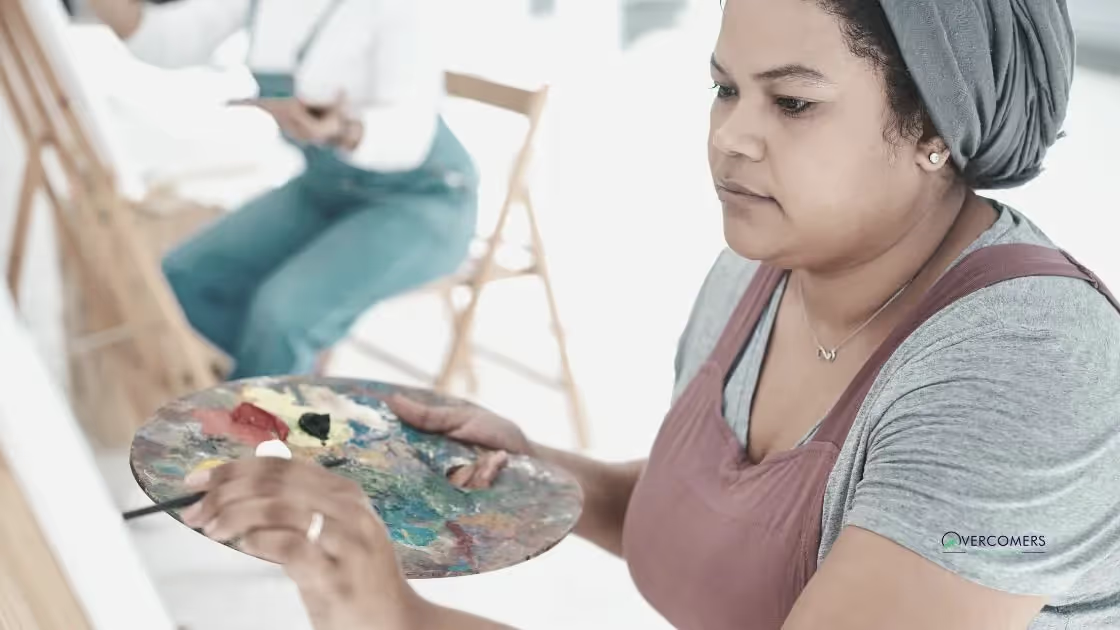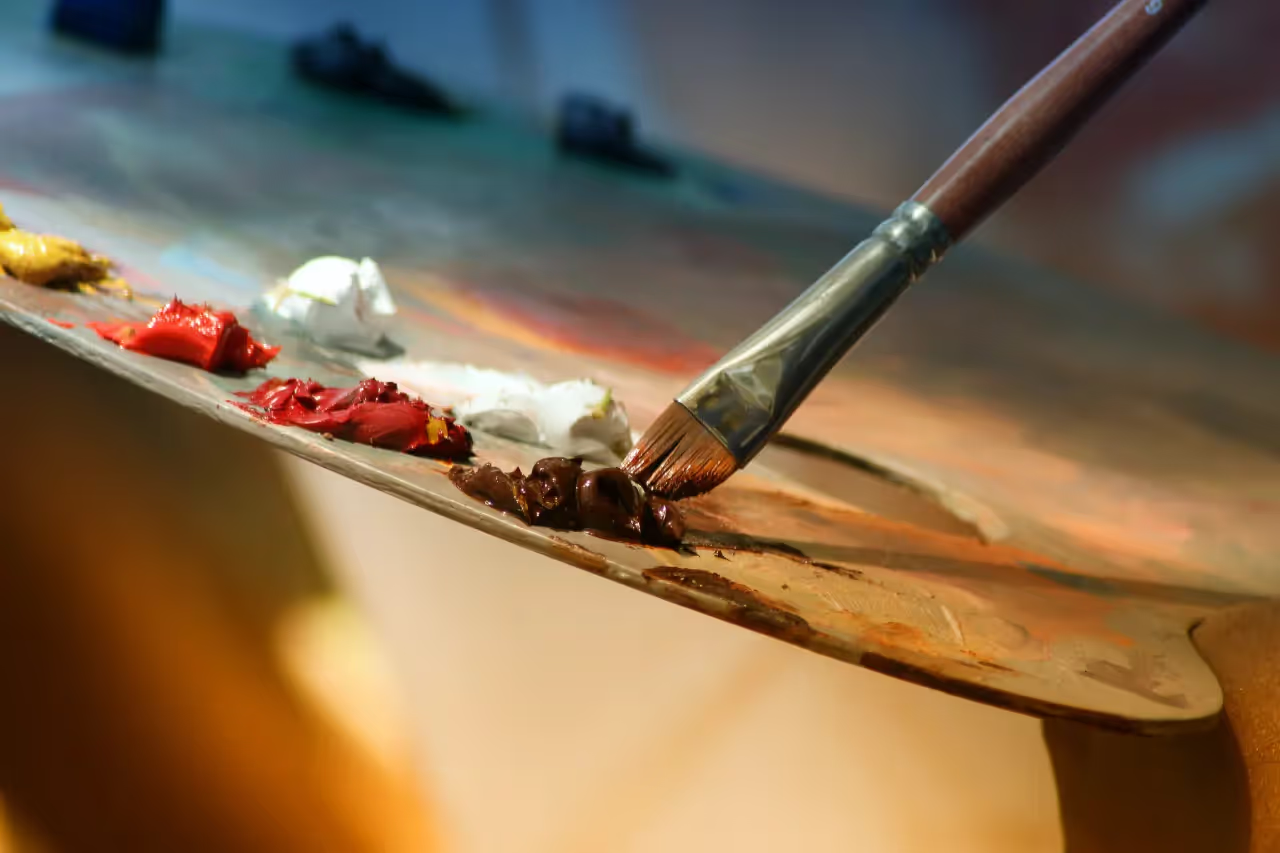Grief can be overwhelming, and sometimes you may need to explore different means of grief therapy to express your pain and emotions. Expression through art...

Grief can be overwhelming, and sometimes you may need to explore different means of grief therapy to express your pain and emotions. Expression through art is one of the ways grieving individuals can express their feelings and emotions when they find it hard to do so with words. Art has numerous benefits, and there are various ways art can help you with grief. For one, art can help you take your mind off grief. It may be impossible for you to focus on doing other things when grieving because your mind is always fixated on the grief you are feeling. Also, art helps you release suppressed emotions. During grief, it is easy for you to be in denial of your feelings and emotions, which may cause you to mask them.
When you engage in artistic activities, you find a means to release some of the feelings you may have evaded and suppressed. Furthermore, art can help you immortalize your memories with your loved ones. The memories you have of your loved one have a deeper meaning to you when they die, and it is normal for you to want to keep these memories. Creating artwork through painting, sculpting, or even getting a tattoo can be a way to immortalize your loved ones. Continue this overview to learn more about how art can help you with grief:
One of the many ways art can help you with grief is by assisting you in taking your mind away from grief. Art is therapeutic and can help divert your attention away from your grief. Most people turn to art to express their sorrow and to avoid bottling up their feelings and emotions. Due to the repetitive and soothing nature of art, it is ideal for meditation and creating a sense of calm. Using art as a form of meditation can help you find inner peace and calmness. Meditation and art creation also help raise serotonin levels in the brain, which helps fight depression. Art-related activities like painting, creating music, sculpting, and dancing can help you relax and channel your energy to something other than grief. It can help detach you from your grief and live in the moment instead of thinking of your loss. Furthermore, creating art keeps you calm, grounded, and focused on the present. Art's calming effect can help you relax, lower your blood pressure, and regulate your heart rate.
Another way art can help you with grief is by helping you open up and release the emotions that you have suppressed. The feelings of grief can be overwhelming, and sometimes, you may find it difficult to express your feelings and emotions when grieving. When you are grieving, it is easy to suppress a lot of emotions, and when these suppressed emotions are left unattended for a long time, they can manifest as chronic sadness and depression. Creating art with no specific goal in mind, that is, creating art in any form without the pressure of it being perfect or liked by anyone, helps release suppressed grief and emotions. Although you can express your feeling and emotions through words and writing, engaging in creative activities can help you express emotions that are hard to put into words. It enables you to express your suppressed and overwhelming thoughts and feelings more freely. Furthermore, engaging in creative processes allows you to narrate your grief easily, and it doesn't matter if the end product of your creative process has no meaning to others. The main idea is not the art created but the process and intention that goes into it.
Another way art can help you with grief is by giving you a medium to create something in memory of your loved one. Creating art offers you a medium to immortalize your loved ones and keep your memories with them. Memories with your lost loved one have more meaning and become more special after they are gone. Creating something visual can be a good expression of your emotions and feelings for your loved one. It allows you to create a thoughtful reminder of your loved one. Also, by channeling your efforts and emotions, you can create a unique piece of art that will physically represent your relationship and memories with your loved one. You can have something to look at or hold on to whenever you miss your loved one when you create art in their memory. Furthermore, you can keep the memories of your loved one alive by writing or singing a song, creating a scrapbook of your memories, knitting a blanket, or even getting a tattoo. The goal is to engage in a creative process that makes you comfortable.

Studies have shown that using art as a form of therapy significantly helps individuals who struggle with anxiety. Therefore, art can help you with grief by reducing anxiety and depression that may sometimes happen because of the feeling of grief. Art helps to manage anxiety by bringing you a sense of calm and helping you express your intense feelings and emotions. Anxiety sometimes happens due to thoughts, feelings, and events that we find difficult to discuss. Art, therefore, serves as a medium to express these thoughts and emotions creatively, safely, and constructively. Also, while art can help with anxiety, it is not a substitute for professional therapy or counseling. It can only be effective when combined with professional therapy and grief counseling. Furthermore, as with any form of therapy, creating art to manage anxiety must be practiced regularly. After successfully managing your anxiety, you should find ways to engage yourself in creative processes.
Art can help you with grief by making it easy to express your feelings without uttering a word. It provides an alternative and non-verbal way for people to express their grief when they can't find the right words. Using art to express yourself eliminates the need to rely on mere words. The end product of your creative process does all the talking for you. In other words, your artwork speaks for itself. You can easily paint your feelings and emotions with little to no hesitation because you are not required to use words to express yourself. Art as a form of therapy allows you to express your grief and traumatic experiences without reliving them. Creating art is not meant to hurt you or bring up painful memories; it is only meant to provide you with a sense of calm and a platform to express your emotions. Furthermore, it is okay if you find it difficult to express your grief with words. Explore various art forms like dancing, painting, sculpting, clay molding, or singing, and pick the one that works best for you.
You don't have to be artistic to explore the benefit of art as a therapy for grief. It is only a form and medium to express your feelings and emotions, not for you to display and show off your talent. The sole purpose is to find peace and not to unleash your inner Picasso. Art can help you with grief by taking your mind off grief, releasing suppressed emotions, helping you find ways to immortalize your loved one, helping you manage anxiety, and helping you express your emotions without words.
https://www.jewelrykeepsakes.com/art-therapy-and-grief
https://www.recover-from-grief.com/using-art-for-healing.html
https://www.joincake.com/blog/grief-art/
https://eirene.ca/blog/art-therapy-for-processing-grief-loss
https://adrianreynolds.ie/6-ways-art-therapy-helps-panic-and-anxiety/
https://andersontherapy.ca/art-therapy-and-the-process-of-grieving/
The duration of grief counseling varies for each individual, depending on the severity of their grief and their progress in therapy. Our therapists will regularly assess your progress and adjust your treatment plan as needed.
Some signs that you may be ready to move on include feeling at peace with the breakup, no longer regularly thinking about your ex, and having a renewed sense of optimism. Ultimately, only you can decide when you're ready to start dating again or take other steps toward moving on.
Grief can be particularly intense in the early days following a loss. However, it's not uncommon for grief to become more pronounced at certain times, like at night or in the morning. This can be due to the mind being busy processing the events that happened.
Grief can seem worse in the morning as the reality of the loss is often one of the first thoughts upon waking. This can be particularly true if you shared many mornings with the person who has passed away during wonderful years spent together.
There is no "right" or "wrong" answer when it comes to how long grief will last in the elderly. For some people, the grieving process may last for several months or even years. For others, it may come in waves – they may have periods of intense grief followed by periods of relative calm. It's important to remember that everyone grieves in their own way and at their own pace.
Dealing with someone who is addicted to drugs or alcohol can be difficult. It is important to remember that addiction is a disease, and the addict is not responsible for their behavior. You can offer support and understanding, but it is important to set boundaries. You can also get help for yourself through therapy or counseling.